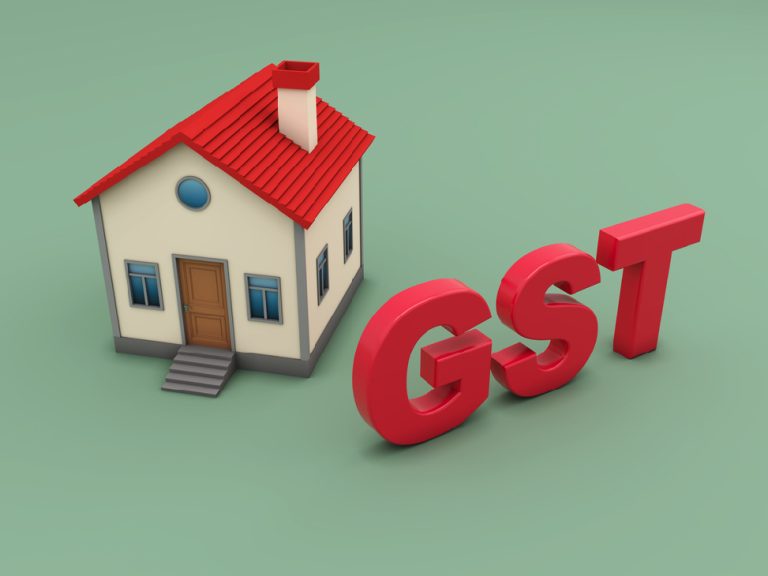Meenakshi Taheem
Getting home loan is very BASIC now
Get a loan in under 5 mins

Table of Contents
The Goods and Services Tax (GST) has been one of the most significant reforms in India’s indirect tax regime. Since its implementation in July 2017, it has touched various sectors, including the real estate market. If you’re considering buying a home in India, understanding how GST on home loan and property impacts your purchase is crucial.
Before diving into the specific details, it’s good to know the basic structure of GST. It is a multi-stage, comprehensive tax that is levied on the supply of goods and services. India’s GST is structured at various rates, including 5%, 12%, 18%, and 28%. There is also a 0% tax rate, and some goods are exempt from GST altogether.
Suggested read: Old vs New Tax Regimes
The real estate sector witnessed substantial changes in GST rates over the years. Here’s a quick breakdown:
While GST does not apply directly to the loan amount you take, it is levied on the processing fees, legal charges, and other services the bank offers while sanctioning the home loan. Generally, these charges attract a standard GST rate, often 18%.
Suggested read: Taxes on Property Sales
To claim the reduced GST rates on affordable housing, one must know the definition of the term:
While ITC was a beneficial feature for developers (allowing them to claim credit for taxes paid on inputs), the new GST rates from April 2019 disallowed this benefit. The reduction in rates was to provide relief to the end consumer, but it’s still debated whether removing ITC has been truly beneficial.
Suggested read: Pre-EMI Tax Benefits on Home Loan
Commercial properties, such as office spaces and shops, attract a GST of 12%. Land leasing, renting of commercial properties, and some other property transactions also come under the purview of GST.
While GST introduced a new layer of tax, it also eliminated multiple other taxes like VAT, Service Tax, and more, bringing more transparency to the system. The reduced rates for under-construction properties can also translate to some savings for homebuyers.
Understanding GST’s impact on home buying can guide you in making an informed decision. While there are benefits, it’s always wise to consult with real estate experts and tax advisors before finalizing your purchase. The Indian real estate market is vast and varied, and keeping abreast of the latest tax rules can help you navigate it better.
The home loan borrower will pay GST, but it’s essential to note that GST is not levied on the loan amount itself. Instead, it’s charged on the various service charges associated with the loan, such as processing fees.
The loan amount (whether above or below ₹50 lakhs) does not attract GST. However, the services associated with processing the loan, like processing fees, would have GST applied to them irrespective of the loan amount.
No, GST is not charged on the loan amount. It is charged on the processing fees and other service charges related to sanctioning the loan.
Yes, the loan amount is exempt from GST. However, the services related to the loan (e.g., processing fees) are not exempt and attract GST.
The GST is not on the home loan amount but on associated services. Typically, the processing fees and related services often attract a GST rate of 18%.
GST and stamp duty are separate components. While GST is a tax levied by the Central and State governments on services, stamp duty is a state tax on property transactions. When taking a home loan, banks or financial institutions might finance the property’s cost, which usually does not include stamp duty and GST. However, some lenders may offer additional bridging loans or top-ups to cover these costs.
No, GST is not applied on stamp duty. They are separate charges. Stamp duty is a tax on property transactions and is levied by state governments, while GST is a central and state tax on goods and services.
Published on 28th October 2023